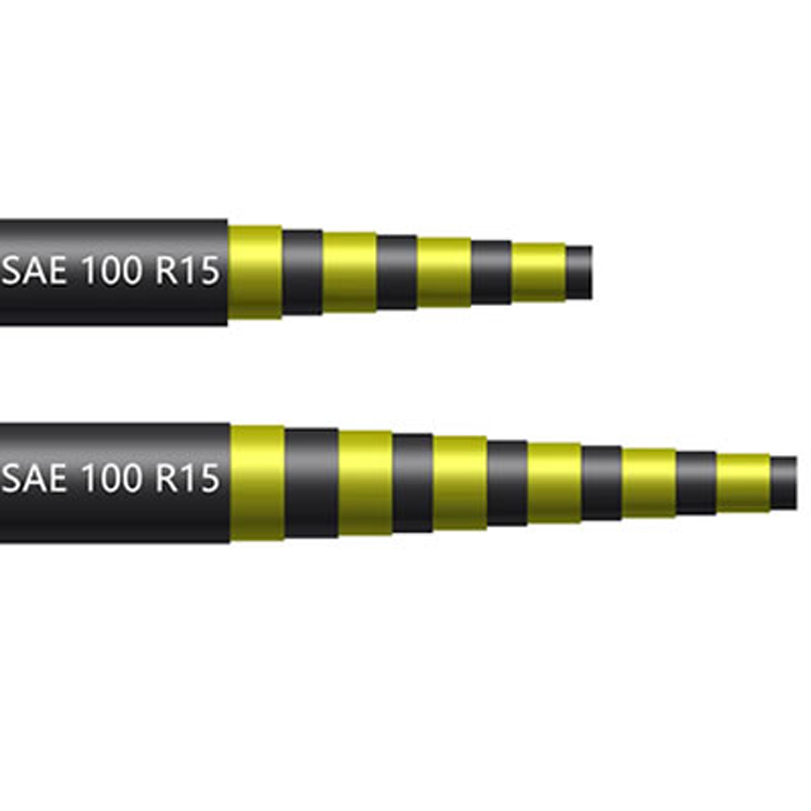8 月 . 19, 2024 11:32 Back to list
Flexible PTFE Hose Manufacturing Solutions for Various Industrial Applications
The Importance of Flexible PTFE Hose Factories in Modern Industries
In recent years, the need for durable, reliable, and flexible hose solutions has grown significantly across various industries. One of the most innovative products meeting this demand is the flexible polytetrafluoroethylene (PTFE) hose. Flexible PTFE hose factories play a crucial role in the supply chain, providing these essential components that contribute to the efficiency and safety of numerous applications, from chemical processing to aerospace.
Understanding PTFE Hose
PTFE, commonly known as Teflon, is a high-performance polymer that exhibits remarkable chemical resistance, thermal stability, and low friction properties. These characteristics make PTFE hoses particularly valuable in industries where traditional materials might degrade or fail. Flexible PTFE hoses can withstand a wide temperature range, typically from -60°F to 500°F (-51°C to 260°C), and resist degradation from harsh chemicals, making them ideal for handling corrosive substances.
The Role of Flexible PTFE Hose Factories
Flexible PTFE hose factories are specialized manufacturing facilities that produce these high-quality hoses to meet specific industry needs. The production process involves several critical steps, including the selection of raw materials, precision extrusion, and thorough quality control. Factories must implement cutting-edge technology and adhere to strict industry standards to ensure the hoses are reliable and safe for use.
Moreover, these factories often invest in research and development to innovate and enhance their product offerings continually. With advancements in technology, manufacturers can produce hoses that not only meet but exceed industry requirements, thereby providing added value to their customers.
Applications Across Industries
flexible ptfe hose factory

Flexible PTFE hoses are used in a wide range of applications, making them indispensable across various sectors. In the pharmaceutical and food processing industries, for instance, these hoses are utilized for transporting liquids and gases without risk of contamination thanks to their non-reactive nature. Furthermore, flexible PTFE hoses are essential in the chemical manufacturing sector, where they are used to convey aggressive chemicals safely.
In aerospace and automotive applications, the ability to withstand extreme temperatures and pressures makes PTFE hoses a preferred choice. These hoses help ensure the efficient operation of engines and fuel systems while maintaining safety standards.
Quality Assurance and Certification
Given the critical applications of flexible PTFE hoses, quality assurance is paramount. Reputable flexible PTFE hose factories adhere to strict quality control protocols, often obtaining certifications such as ISO 9001. This not only ensures that the hoses meet international safety and quality standards, but it also builds trust with customers who rely on these components for critical operations.
The Future of Flexible PTFE Hose Factories
As industries evolve and face new challenges, the demand for flexible PTFE hoses is expected to increase. Factors such as the rise of automation, the growth of green technologies, and an increasing focus on safety and compliance will drive this growth. Flexible PTFE hose factories will need to adapt by investing in advanced manufacturing techniques and sustainable practices to meet the changing landscape.
In conclusion, flexible PTFE hose factories are integral to modern industry, providing the necessary components that ensure the safety, efficiency, and reliability of operations across various sectors. As technology advances and industries grow, these factories will continue to play an essential role in supporting the global economy and fostering innovation. By prioritizing quality and adaptability, flexible PTFE hose factories can thrive in an ever-evolving marketplace, contributing to the progress of numerous applications and ensuring a safer and more efficient future.
-
EN857 2SC Hydraulic Hose Suppliers OEM & China Manufacturers
NewsMay.30,2025
-
51mm Hydraulic Hose Manufacturer China OEM Durable & Custom Solutions
NewsMay.30,2025
-
OEM Rubber Air Hose Supplier Durable Custom Solutions
NewsMay.29,2025
-
High-Pressure Wrapped Cover Steel Wire Spiral Hydraulic Hose Supplier
NewsMay.29,2025
-
Rubber water suction and discharge hose
NewsMar.07,2025
-
SAE 100 R6/EN 854 R6 Fibre Braided Oil Hose
NewsMar.07,2025



